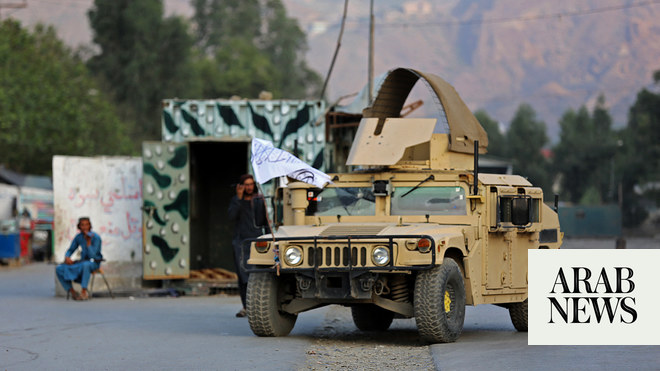ISLAMABAD: Protesters clash with paramilitary Rangers forces in Azad Kashmir, leaving at least three people dead, even as Pakistan announced $83 million in subsidies to reduce flour and electricity prices in the region. Several people were killed and dozens injured, officials said Monday.
The development came amid days of protests led by the Jammu and Kashmir Joint Awami Action Committee (JAAC) in the disputed Himalayan valley administered by Pakistan. The commission calls for electricity prices to be commensurate with subsidized flour and hydropower generation. Costs in Azad Kashmir.
On Saturday, authorities blocked a rally from the region’s Poonch and Kotli districts to Azad Kashmir’s capital Muzaffarabad, leaving one policeman dead in clashes between police and protesters. Weekend talks between the JAAC core committee and AJK chief Dawood Balich in Rawalakot ended in a stalemate, and a planned march by protesters into the capital resumed on Monday.
Azad Jammu and Kashmir (AJK) Prime Minister Anwar-ul-Haq said in a press conference on Monday that regional governments should be given a subsidy of 23 billion rupees ($83 million) after Pakistani Prime Minister Shehbaz Sharif approved 23 billion rupees ($83 million) in subsidies. He said that the government had announced a reduction in the prices of flour and electricity.
Abdul Majid Khan said, “Despite issuing notifications to reduce electricity and wheat prices and addressing other demands, protesters attacked the Rangers’ convoy, leading to a gunfight. Three civilians were killed and many injured on both sides.” an AJK government spokesperson told Arab News.
“The deployment of Rangers is not unusual; [protesters] “The attack on the convoy was unnecessary as the government had already accepted the demands,” he added.
“The situation is now under control and we are working to calm it down as the government will not allow mischievous elements to succeed.”
Amjad Ali Khan, a member of the JAAC core committee, said the demonstrators had been considering canceling their protests following the announcement of the price cut, but after the killing of three demonstrators, the situation had become “completely dire.” It’s changed,” he said.
“At the moment, the exact number of injured is unknown as many people are injured and three people are confirmed dead,” he told Arab News.
Amjad said the large-scale deployment of paramilitary Rangers had agitated the protesters, which resulted in clashes breaking out in different areas of Muzaffarabad.
“Although this is the actual issue that started the demonstration, [protesting] “Although it has been resolved, this new development has changed everything and we will decide on a new course of action tomorrow (Tuesday),” he added.
The Himalayan region of Kashmir has been divided between India and Pakistan since they gained independence from Britain in 1947, and both countries control part of the territory, but do not claim the entire area. ing. The western part of the larger Kashmir region is administered by Pakistan as a nominally autonomous entity, while India administers the southern part of the larger Kashmir region as a union territory.
The Indian side has faced decades of continuous insurgency and repeated state armed attacks to quell it, while the Pakistani side has been highly militarized for decades. It has remained relatively calm.
Subsidy
Earlier on Monday, AJK Prime Minister Haq announced lower prices for flour and electricity in the region, and Pakistani Prime Minister Shehbaz Sharif approved a 23 billion rupee ($83 million) subsidy to make it possible. I was grateful.
“he [Sharif] Directions have been issued and long-pending provisions in terms of subsidies, power prices and resources have been provided to Azad Kashmir,” Haq said.
The new electricity tariff in the area will be Rs 3 per unit for 1 to 100 units, Rs 5 per unit for 100 to 300 units, and Rs 6 per unit for those consuming 300 or more units. According to Haq, the commercial unit price will be 10 rupees for 1 to 300 pieces and 15 rupees for 300 pieces or more. A 40 kg bag of flour, which was previously sold for Rs 3,100, will now be sold for Rs 2,000.
“This will cost the national exchequer more than Rs 23 billion,” Haq added. [federal] The Pakistani government and prime minister happily accepted. ”

